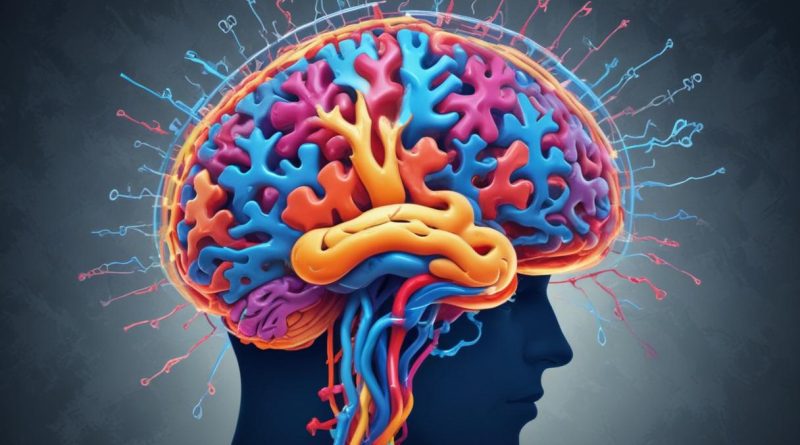Boost Your Brain: Top Foods to Enhance Memory, Mental Health, and Cognitive Function
The connection between diet and brain health is profound. Just as the body benefits from proper nutrition, so too does the brain. The foods we consume can significantly impact our cognitive functions, memory, and overall mental health. In this comprehensive guide, we will explore the top foods that are scientifically proven to boost brain power, enhance memory, and support mental well-being.
Introduction
The brain, a complex and powerful organ, requires a variety of nutrients to function optimally. These nutrients support various brain functions, including the production of neurotransmitters, the maintenance of cellular structure, and the prevention of oxidative stress. In recent years, research has increasingly highlighted the importance of diet in maintaining cognitive health and preventing mental decline.
Related Article: What are the Foods that Increase Your Brain Power?
Historical Context: Diet and Brain Health
The relationship between diet and brain health has been recognized for centuries. Ancient civilizations like the Greeks and Egyptians understood that certain foods could enhance cognitive abilities and memory. Philosophers like Hippocrates famously said, “Let food be thy medicine and medicine be thy food,” emphasizing the crucial role of diet in overall health, including mental well-being.
In modern times, scientific research has provided concrete evidence supporting these ancient beliefs. Studies have identified specific nutrients and foods that are particularly beneficial for brain health, leading to a better understanding of how we can use diet to enhance cognitive function and mental health.
Key Nutrients for Brain Health
Before diving into specific foods, it’s important to understand the key nutrients that contribute to brain health:
- Omega-3 Fatty Acids: Essential for brain function and development, omega-3 fatty acids reduce inflammation and support synaptic plasticity, which is crucial for learning and memory.
- Antioxidants: These protect the brain from oxidative stress, which can damage brain cells. Key antioxidants include vitamins C and E, as well as flavonoids.
- B Vitamins: Vital for energy production and the creation of neurotransmitters, B vitamins (such as B6, B12, and folic acid) play a significant role in brain health.
- Vitamin D: Often called the “sunshine vitamin,” vitamin D is essential for brain function and has been linked to improved mood and cognitive performance.
- Choline: Important for the production of acetylcholine, a neurotransmitter associated with memory and learning.
- Magnesium: Supports neurotransmission and is involved in the biochemical reactions in the brain.
Top Foods to Boost Brain Power
- Fatty Fish
- Example: Salmon, mackerel, sardines
- Benefits: Rich in omega-3 fatty acids, which are crucial for brain health. Omega-3s help build cell membranes in the brain and promote the development of new neurons.
- Blueberries
- Benefits: Packed with antioxidants, particularly anthocyanins, which have been shown to improve brain function and delay brain aging.
- Turmeric
- Benefits: Contains curcumin, a powerful antioxidant and anti-inflammatory compound that can cross the blood-brain barrier and improve memory.
- Broccoli
- Benefits: High in antioxidants and vitamin K, which is essential for forming sphingolipids, a type of fat that’s densely packed into brain cells.
- Pumpkin Seeds
- Benefits: Rich in magnesium, iron, zinc, and copper, all of which are critical for brain health.
- Dark Chocolate
- Benefits: Contains flavonoids, caffeine, and antioxidants, all of which can enhance brain function.
- Nuts
- Example: Walnuts, almonds
- Benefits: A great source of healthy fats, antioxidants, and vitamin E, which protects cell membranes from oxidative damage.
- Oranges
- Benefits: High in vitamin C, which has been linked to the prevention of mental decline.
- Eggs
- Benefits: Provide choline, which is essential for the production of acetylcholine, a neurotransmitter involved in memory.
- Green Tea
- Benefits: Contains caffeine and L-theanine, which can enhance brain function by promoting relaxation and alertness.
Latest Research and Findings
Recent studies have continued to reinforce the connection between diet and cognitive health. For example, a study published in “Neurology” found that higher levels of omega-3 fatty acids in the blood were associated with larger brain volumes and better cognitive function in older adults. Another study in “Nutrients” highlighted the neuroprotective effects of flavonoids found in fruits like blueberries and their ability to improve memory in both young and old adults.
Furthermore, emerging research on the gut-brain axis suggests that the health of our gut microbiome may influence brain function. Foods rich in fiber, such as vegetables, fruits, and whole grains, support a healthy gut microbiome, which in turn may have positive effects on brain health.
Conclusion
The foods we eat play a crucial role in maintaining and enhancing our brain health, memory, and mental well-being. Incorporating a variety of nutrient-dense foods into your diet can help support cognitive functions, protect against mental decline, and improve overall mental health. By making informed dietary choices, we can take significant steps towards a healthier, more vibrant brain.
FAQs
A: While some benefits may be noticed relatively quickly, such as improved mood or alertness, significant changes in cognitive function and memory typically take a few weeks to a few months of consistent dietary improvements.
A: Whole foods are generally more effective than supplements because they provide a complex mix of nutrients that work together synergistically. However, supplements can be beneficial in cases of specific nutrient deficiencies.
A: Yes, a diet high in processed foods, sugar, and unhealthy fats can contribute to inflammation and oxidative stress, which are linked to cognitive decline and mental health issues like depression and anxiety.
A: While diet alone may not fully reverse cognitive decline, it can significantly slow its progression and improve overall brain health. Combining a healthy diet with other lifestyle changes, such as regular exercise and mental stimulation, can have a more profound impact.
A: Very important. Even mild dehydration can impair cognitive function, concentration, and memory. Drinking plenty of water and staying hydrated is crucial for optimal brain performance.




